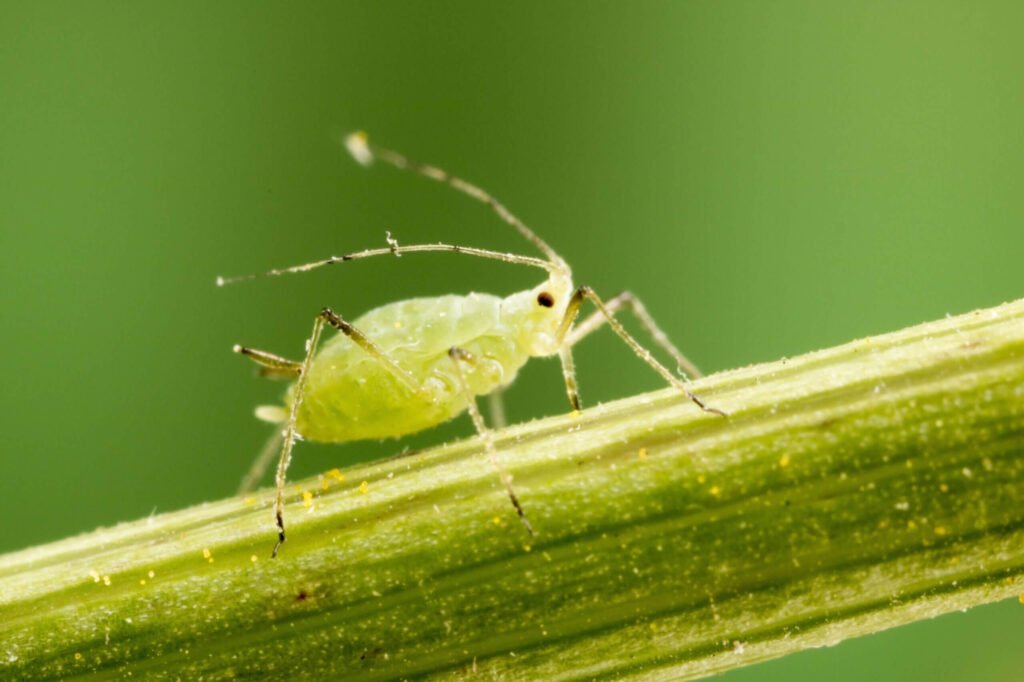Protect your garden the natural way! Discover powerful organic pest control solutions that are safe, effective, and earth-friendly. 🌿🐞
Best Organic Pest Control Solutions for Your Garden

Keeping your garden healthy and pest-free doesn’t have to mean using harsh chemicals. Whether you’re growing herbs, flowers, or vegetables, organic pest control offers a safe, eco-friendly, and effective alternative. In this guide, we’ll dive into the best organic pest control solutions to help your garden thrive naturally.
Why Go Organic for Pest Control?
Choosing organic methods over chemical-based pesticides offers multiple benefits:
- Safe for pets and children
- Better for the environment
- Promotes biodiversity
- Preserves soil health
- Supports pollinators like bees and butterflies
It’s about creating a balanced ecosystem where beneficial insects thrive and harmful pests stay in check—naturally.
Common Garden Pests and Natural Remedies
Let’s explore how to handle the most common intruders in your garden using natural remedies.
1. Aphids

Symptoms: Curling leaves, sticky residue (honeydew), yellowing.
Solution:
- Mix a homemade neem oil spray (1 tsp neem oil, ½ tsp dish soap, 1 liter water).
- Release ladybugs—their natural predators.
- Use garlic and chili spray as a deterrent.
Prevention Tips to Keep Aphids Away Naturally
- Plant Companion Crops
- Grow marigolds, basil, or nasturtiums nearby to repel aphids naturally.
- Early detection = easier control.
2. Slugs and Snails

Slugs and Snails
Symptoms: Holes in leaves, slime trails.
Solution:
- Place beer traps in shallow containers to lure and trap them.
- Scatter crushed eggshells or diatomaceous earth around plants.
- Introduce predatory nematodes to the soil.
Preventive Tips to Keep Slugs & Snails Away
- Avoid Overwatering
- Moist environments attract slugs. Water in the morning, so soil dries by night.
3. Caterpillars

Symptoms: Chewed leaves, visible larvae.
Solution:
- Spray plants with Bacillus thuringiensis (Bt), a bacteria safe for humans but toxic to caterpillars.
- Use floating row covers to protect young plants.
- Attract birds by adding birdhouses or feeders nearby.
Preventive Tips to Keep Caterpillars Away
- Plant Sacrificial Crops
- Grow trap plants like nasturtiums or mustard greens nearby to attract caterpillars away from your main crops.
4. Spider Mites

Symptoms: Speckled or bronzed leaves, fine webbing.
Solution:
- Wipe leaves with a water-alcohol mix (1:1 ratio).
- Spray neem oil every 7 days.
- Increase humidity—spider mites hate moisture.
Preventive Tips to Keep Spider Mites Away
- Increase Humidity
- Mites love dry conditions. Mist plants or use a humidity tray, especially for indoor or greenhouse plants.
Powerful Organic Pest Control Products
While DIY solutions are great, sometimes you need a little extra help. Here are a few top-rated organic pest control products:
| Product | Key Ingredient | Use |
|---|---|---|
| Safer Brand Insecticidal Soap | Potassium salts | Soft-bodied insects |
| Neem Bliss Cold Pressed Neem Oil | Neem oil | Aphids, mites, whiteflies |
| Diatomaceous Earth | Fossilized algae | Slugs, beetles, ants |
| BT Worm & Caterpillar Killer | Bacillus thuringiensis | Caterpillars |
Tip: Always test a small area before spraying the whole plant.
Natural Pest-Repelling Companion Plants
Some plants work as natural repellents by releasing scents pests hate. Try planting these:
- Marigolds – repels nematodes and whiteflies
- Basil – deters mosquitoes and flies
- Lavender – repels moths and beetles
- Mint – keeps ants, aphids, and cabbage moths at bay
- Chives – protect against aphids and Japanese beetles
Gardening Tips for Preventing Pests Organically

Prevention is key! Here’s how to create a pest-resistant garden naturally:
✅ Maintain Healthy Soil
Healthy plants resist pests better. Add organic compost and mulch regularly.
✅ Water Early in the Day
This prevents fungal diseases and reduces night-dwelling insects.
✅ Clean Up Debris
Dead leaves and old plants invite pests. Keep your garden tidy!
✅ Rotate Crops
Switch planting areas each season to confuse pests and reduce infestations.
Final Thoughts
Organic gardening isn’t just a trend—it’s a lifestyle shift toward sustainability, safety, and a deeper connection with nature. By using these natural pest control methods, you’ll create a garden that’s not only beautiful but also eco-conscious and chemical-free.
Whether you’re a seasoned gardener or just getting started, these eco-friendly strategies will help you win the battle against pests—naturally and powerfully.
Disclaimer
This blog is intended for informational and educational purposes only. The views expressed are personal opinions or general insights, not professional or legal advice. Readers should do their own research or consult relevant professionals before taking action based on this content.
#OrganicGardening #PestFreeGarden #EcoFriendlySolutions #carrerbook#Anslation#NaturalPestControl #GardeningTips #HomeGarden #NoChemicals #SustainableLiving #NeemOilSpray #GardenHacks #DIYPestControl

